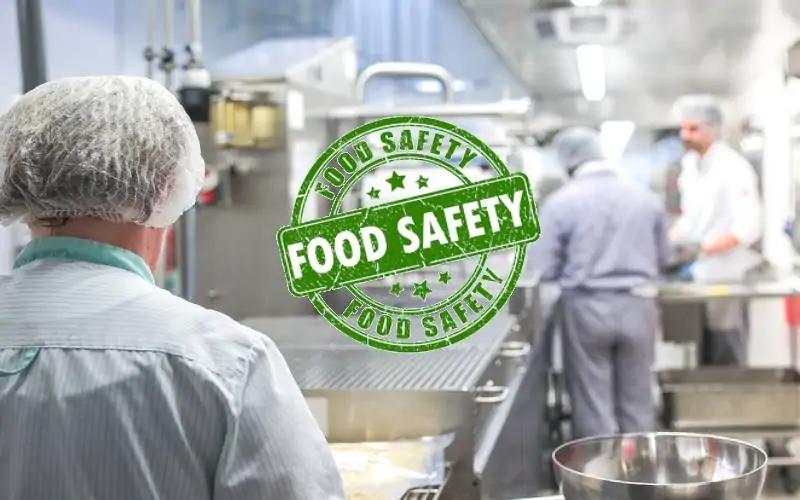Food items are one of the most traded goods on the planet. Every year, the world’s population continues to rise, and so do markets and international trade. The growing complexity of the production and increased consumption of food is unavoidable as these aspects continue to expand. Because of these huge megatrends affecting food delivery, food safety compliance is more essential than ever today. Each nation has its own independent regulatory agency that dictates and enforces its own domestic food safety regulations to ensure food safety in its region.
What is Food Safety?
Food safety covers guidelines and methods to prepare, handle, and store food in ways that reduce the risk of food poisoning and harm. A trip along the supply chain may be filled with a variety of health risks, with the farm, factory, and table bearing some of the worst dangers. In order to limit and even eliminate these hazards and avoid damage to customers, the risk is managed throughout the food production life cycle by using basic food handling measures. Food safety describes all measures needed to keep food safe. Food safety defines methods for handling, storing, and preparing food in ways that reduce the risk of becoming sick.
Food hygiene and food safety are key since they ensure that your food is safe to eat. The failure to maintain food safety and cleanliness may result in customers becoming sick with food poisoning and foodborne diseases. Food safety and food hygiene are critical to ensuring the health of customers, therefore these principles must be adhered to for the sake of their well-being. Food hygiene and safety are essential for all companies because customers are susceptible to foodborne illnesses and food poisoning. If food is exposed to bacteria, viruses, and other germs, it may give someone food poisoning. Food poisoning makes someone feel extremely sick and terrible if they have consumed the contaminated food – something that’s a nightmare for any company operating in the food and beverage industry.
What is a Food Safety Plan?
The FSP, also known as a Preventative Controls Food Safety System, is a food safety program comprises of main documents, and it is methodical in how it finds and avoids risks that may cause illnesses or injuries due to poor quality of food. It has a variety of papers outlining all the methods necessary to keep food safe during production, processing, packaging, and storage. Food business employs a Food Safety Supervisor to control and administer the program.
The Food Safety Plan tends to perform the following tasks:
- Identify possible risks that may be in all food handling tasks performed in the company to determine where these risks can be dealt with
- Conduct remedial measures when it is discovered that danger is out of control
- A thorough analysis of pre-requisite programs should be conducted, and they should be evaluated periodically to ensure they meet the requirements (at least every 12 months).
Furthermore, a Food Safety Plan must be comprised of the following documents:
- Identify any risks which need a preventative measure to be implemented. The hazard analysis must be completed, even if it doesn’t show any risks that need any preventative controls.
- Control measures, suitable to the facility and the food, to keep food safe from contaminants, including:
- Regulatory monitoring
- Allergen control for food
- Sanitation is regulated.
- Enterprise supply-chain governance
- Plan you remember
- Verification, based on the preventative control’s specific function in the food safety system and the circumstances surrounding it
It is critical to track whether each of the preventative measures is effectively in place to protect consumers. As the severity of the danger and the kind of prevention plan vary, you must adjust the corrective measures accordingly.
Advantages of Implying a Food Safety Plan
- Traditional food safety systems tend to only address problems as they occur. Nonetheless, a Food Safety Plan aims to reduce the risk of problems in the food.
- The food sector should take responsibility for food safety, and a Food Safety Plan is the place to record this fact. Moreover, the standard of food safety rises.
- A Food Safety Plan helps to solve common problems with food management including relying on tests and inspections to ensure food safety. In the long run, it saves your company money.
- One way to make shoppers more comfortable about buying a certain item is to put out a Food Safety Plan. Thus, in this way the customers can be avoided of any sort of food-borne illness.
- Food safety plans are becoming a common requirement among inspectors. If there are kitchen staff members on hand, then they have probably been educated in food handling, and it’s also probable that the kitchen is cleaner than normal.
- To reduce the risk of food poisoning, one should create a Food Safety Plan. You will be able to provide proof of your dedication to food safety if your organization is sued over a food poisoning event. This will include your food safety strategy, the record sheets you have been keeping, and staff training logs.
- Ensuring that infected food is thrown away avoids the risk of using hazardous food. Over time, it may reduce a company’s waste and recall costs, as well as reduce raw material spoilage.
In today’s world, food safety is a global concern that, if not taken care of, affects a wide range of various aspects of daily living. The concepts of food safety are intended to prevent food from being contaminated and causing food poisoning if consumed by humans. The plan may include preventative controls and related requirements, which may include process controls, food allergy controls, sanitation controls, and supplier controls, among other things. The fact that a danger to your customer is also a risk to your company should not be overlooked.
